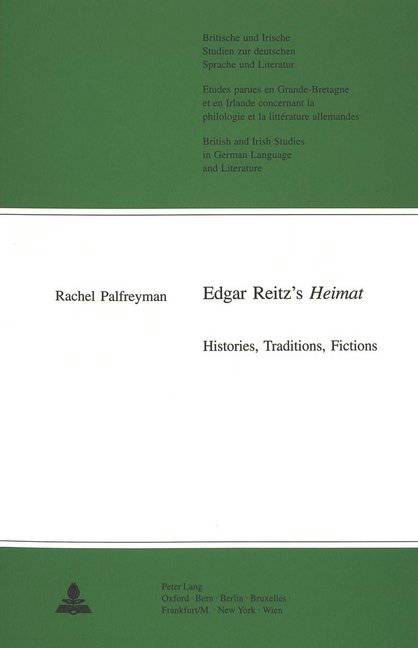
Door een staking bij bpost kan je online bestelling op dit moment iets langer onderweg zijn dan voorzien. Dringend iets nodig? Onze winkels ontvangen jou met open armen!
- Afhalen na 1 uur in een winkel met voorraad
- Gratis thuislevering in België vanaf € 30
- Ruim aanbod met 7 miljoen producten
Door een staking bij bpost kan je online bestelling op dit moment iets langer onderweg zijn dan voorzien. Dringend iets nodig? Onze winkels ontvangen jou met open armen!
- Afhalen na 1 uur in een winkel met voorraad
- Gratis thuislevering in België vanaf € 30
- Ruim aanbod met 7 miljoen producten
Zoeken
Omschrijving
This study of Edgar Reitz's 1984 film saga Heimat explores the cultural contexts of the Heimat tradition and examines the political debate surrounding the film's reception. Responses were largely supportive but some critics were disturbed by an apparent tendency to induce a sense of uncritical nostalgia in viewers. Reitz, by contrast, had wanted to make a film which would help people confront their memories of the Third Reich. The author tests hostile critiques not only against the film's elliptical narrative but also against Reitz's filmic techniques. She examines the interplay of realism and authenticity, and shows how Reitz dramatizes the confrontation between modernity and rural communities, while consciously alluding to the problematic and much-derided Heimat genre.
Specificaties
Betrokkenen
- Auteur(s):
- Uitgeverij:
Inhoud
- Aantal bladzijden:
- 238
- Taal:
- Engels
- Reeks:
- Reeksnummer:
- nr. 21
Eigenschappen
- Productcode (EAN):
- 9783906765877
- Verschijningsdatum:
- 28/11/2000
- Uitvoering:
- Paperback
- Formaat:
- Trade paperback (VS)
- Afmetingen:
- 152 mm x 229 mm
- Gewicht:
- 322 g

Alleen bij Standaard Boekhandel
+ 121 punten op je klantenkaart van Standaard Boekhandel
Beoordelingen
We publiceren alleen reviews die voldoen aan de voorwaarden voor reviews. Bekijk onze voorwaarden voor reviews.











